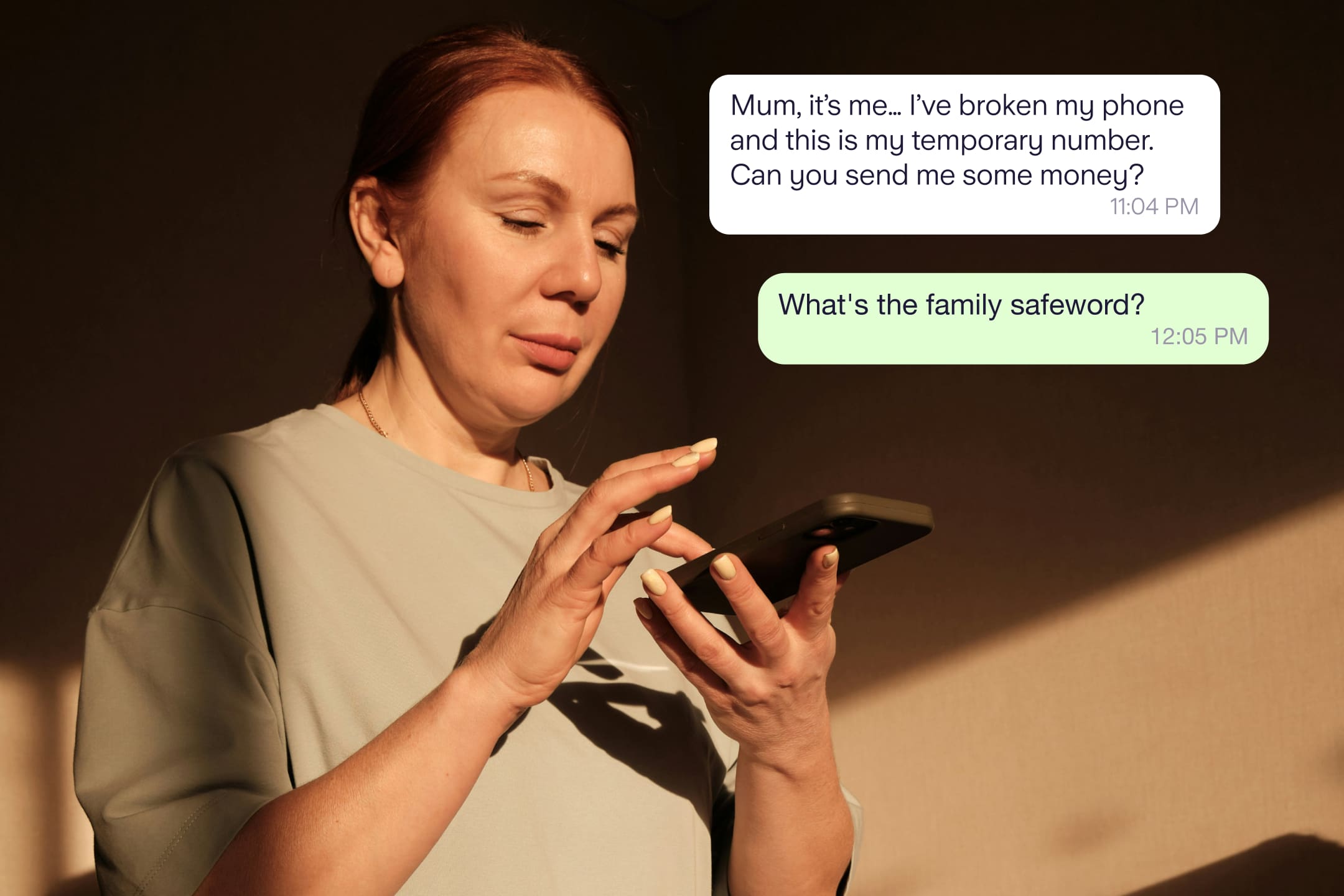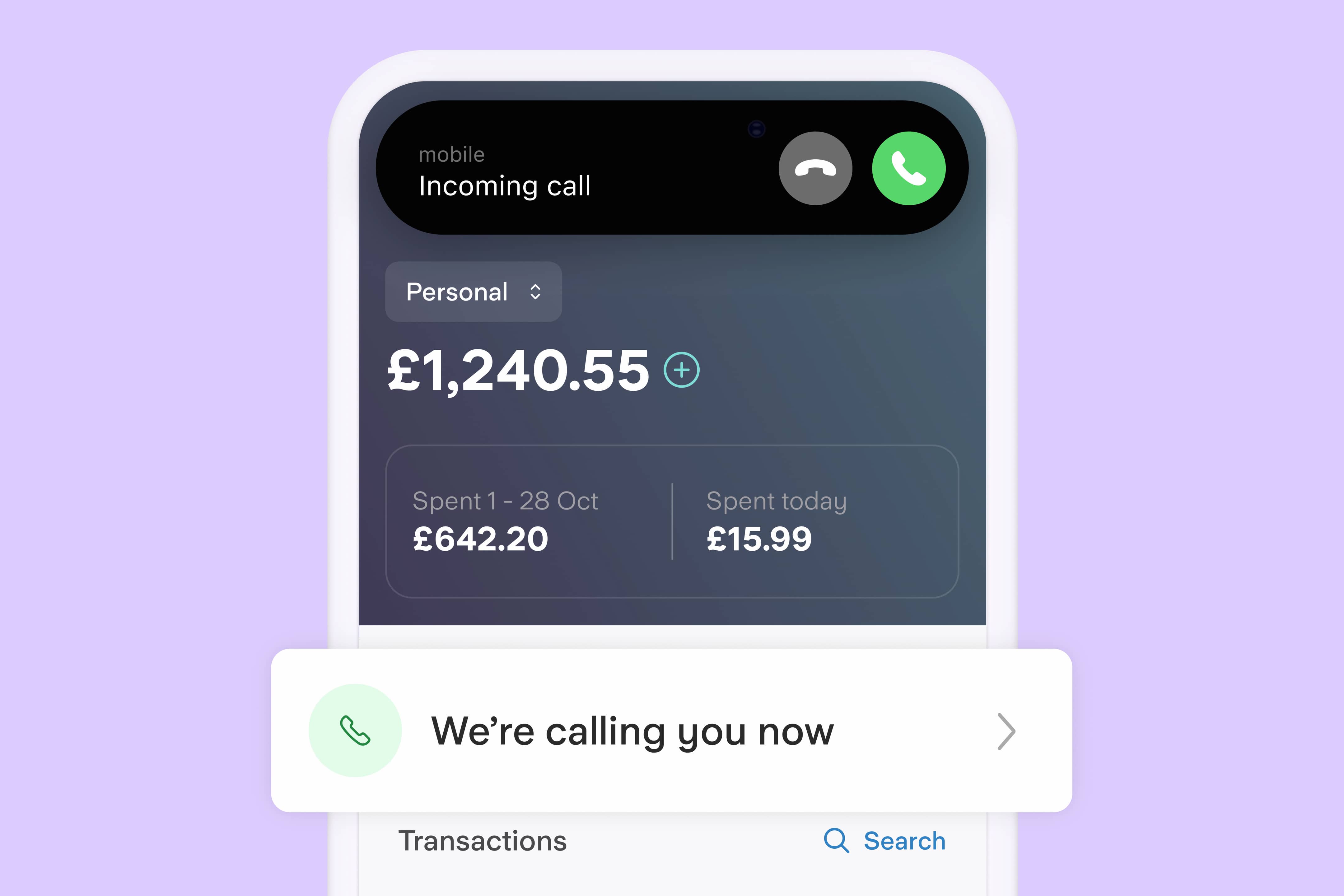
Fighting fraud
Anyone’s identity can be stolen these days
By Starling Financial Crime Specialist
Fighting fraud

It’s early evening. You have a night to yourself and you’re just about to put the kettle on. You wonder when you’ll next hear from your son – it’s been over a week. Is he abroad? He’s always abroad… And then, like magic, you get the following message on WhatsApp from an unknown number:
“Mum, it’s me… I’ve broken my phone and this is my temporary number. Can you help me with some urgent bills?”
It’s a message that has lost people thousands – a simple, yet effective scam set up by fraudsters who know that a parent will do anything they can to help their child. All they need is your phone number.
Once they’ve sent the initial message, a fraudster will often make small talk to try and sound genuine (would your son really ask you how your day’s been over text?!), before asking for a large sum of money. They’ll then tell you that they can’t access their online banking and ask you to send it to a friend’s account. If you suggest a phone call, they’ll make excuses as to why they can’t speak, or even use AI technology to replicate your loved one’s voice to trick you into thinking you’re speaking to them.
Action Fraud has reported that this WhatsApp scam cost victims over £1.5 million between February and June 2022. So don’t fall into the same trap. How? Follow Take Five’s advice when you receive any messages from a new number claiming to be someone close to you: question any requests for money that come out of the blue, and verify who’s asking for it.
The best way to figure out who’s contacted you? Ask a personal question only they would know the answer to. An example: ‘what was the last film we watched together at home?’. Don’t give any clues that could give the answer away and don’t ask something that a criminal could guess by looking through social media.
You could even decide on a family safe word or safe phrase – something that holds meaning only to close family members. This could be a phrase from a TV show you and your family love (“Who needs the Kwik-E-Mart?”), or a line from your favourite book (“Expelliarmus!”) or simply an in-joke (think Uncle Bryn’s fishing trip in Gavin & Stacey).
Keep it in the family: Never share this word or phrase with anyone who’s not in your family, and make sure you change it every now and again. Change it immediately if you think you could have given it out to a scammer or a non-family member. If the safe word or answer to any questions aren’t answered correctly over WhatsApp (or any other messaging app), don’t make any payments and stop responding. You can also block and report the person trying to contact you.
If you think you may have sent money to a fraudster, contact your bank as soon as possible. You can contact Starling via the app 24/7 – a real human will always be on hand to help.
How else can you protect yourself from online scams and fraudsters?
Read more guides from our fraud team
Fighting fraud
By Starling Financial Crime Specialist

Fighting fraud
By Starling Financial Crime Specialist

Fighting fraud
By Starling Financial Crime Specialist

Fighting fraud
By James Nesbitt